Preserving Eggs in Lime Water
Have you ever had to do the Chicken Mama walk of shame through the grocery store to purchase a dozen eggs in the middle of winter? I know I cringe at the thought of ever having to purchase let alone eat a store bought egg. So why not preserve those beautiful, delicious little butt nuggets for those long winter months? That way you never have to take that walk again! Let me show you just how easy it is preserving eggs in lime water for long term storage.
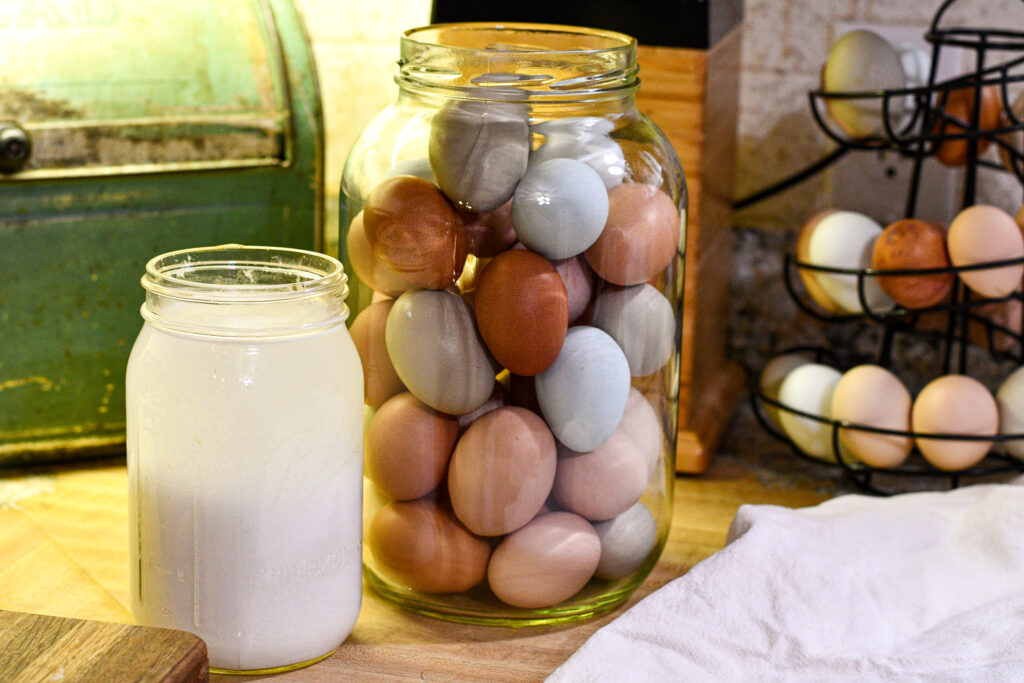
What is Lime Water Preservation?
Preserving eggs in lime water might just be one of the easiest food preservations we do on the farmstead. Lime water preservation is an old fashioned way of keeping eggs for long-term storage. You’ll simply put clean, unwashed eggs in a lime water solution which seals the pores not allowing bacteria to penetrate the egg. Allowing you to save them for 12-18 months, no refrigeration required! Some homesteaders have consumed these eggs 2 years after preservation and were still happy with the results.
This post contains affiliate links, which means I make a small commission at no extra cost to you.
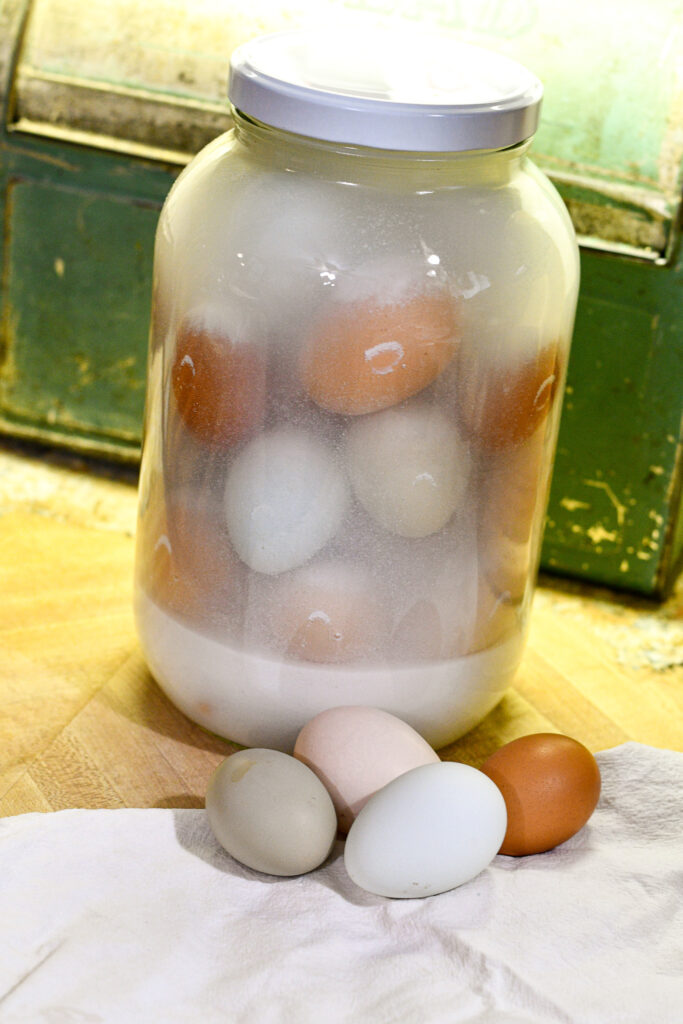
Why do you need to Preserve Eggs?
As a seasoned Chicken Mama I know that not all chickens lay eggs through the winter months, actually most of them stop laying, making eggs more of a seasonal food. The decreasing daylight hours in the fall/winter will affect the hen’s reproductive cycle. A hen actually needs at least 12 hours (14-16 is even better) of light per day to trigger their hormones that cause egg production in their bodies. With that being said less light means less eggs.
On our farmstead we believe God created and designed us all in his image and for a specific reason. We choose not to use any artificial lighting to “trick” the hen’s body into production. Our family believes winter is the time for the whole farmstead to take a break; people, gardens, and chickens alike. We allow our hen’s t rest and rejuvenate their body so they can stay healthy and happy as they continue to feed us those golden yolks the other third of the year.
Come on you know the saying “A Happy Chicken Lays Happy Eggs”! When the hen is in full production (usually spring/summer) is typically perfect time to be preserving some eggs for those non egg-laying, cold, short winter months. However you can be preserving eggs in lime water anytime you have an abundance of fresh, unwashed eggs.
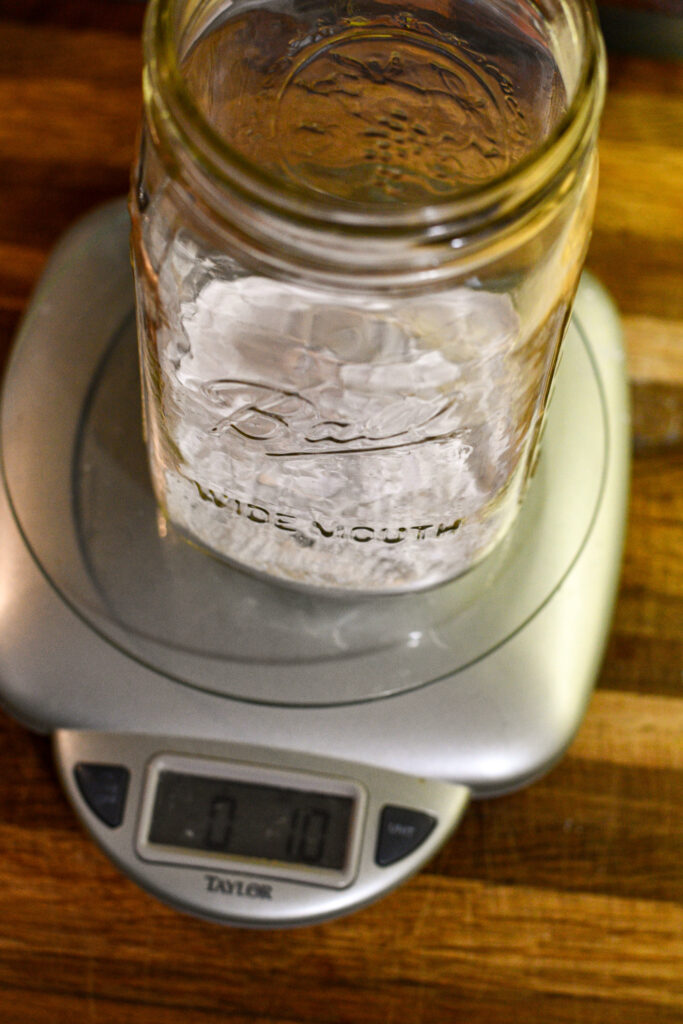
Lime Water vs. Water Glassing and is it Safe?
The preservation of eggs actually dates back to the early 1800s. Many people on their homesteads would use a technique called water glassing. Water glassing used sodium silicate which is actually a type of concrete sealer in order to preserve eggs. I don’t know about you, but it feels a little sketchy to me, and I’m not so sure I would want to consume those eggs with the potential chemicals. These days we can use Lime Water which is a mixture of water and calcium hydroxide also known as hydrated lime or pickling lime.
Hydrated lime is food-grade calcium which is made from slaking finely divided or ground, soft burned lime mixed with water. Lime comes from limestone which is a sedimentary rock that formed millions of years ago as the result of the accumulation of shell, coral, and other ocean debris. (Thank you Google!) In other words I personally feel more comfortable using a more natural stone resource.
Eggs preserved in lime water are safe to consume. Before use you want to make sure and fully wash the eggs and check for any cracks. If you have an egg that’s cracked, discard that egg.
Note: Thera re so many different variations of lime and only food-grade hydrated lime (pickling lime) should be used fro preserving your eggs.
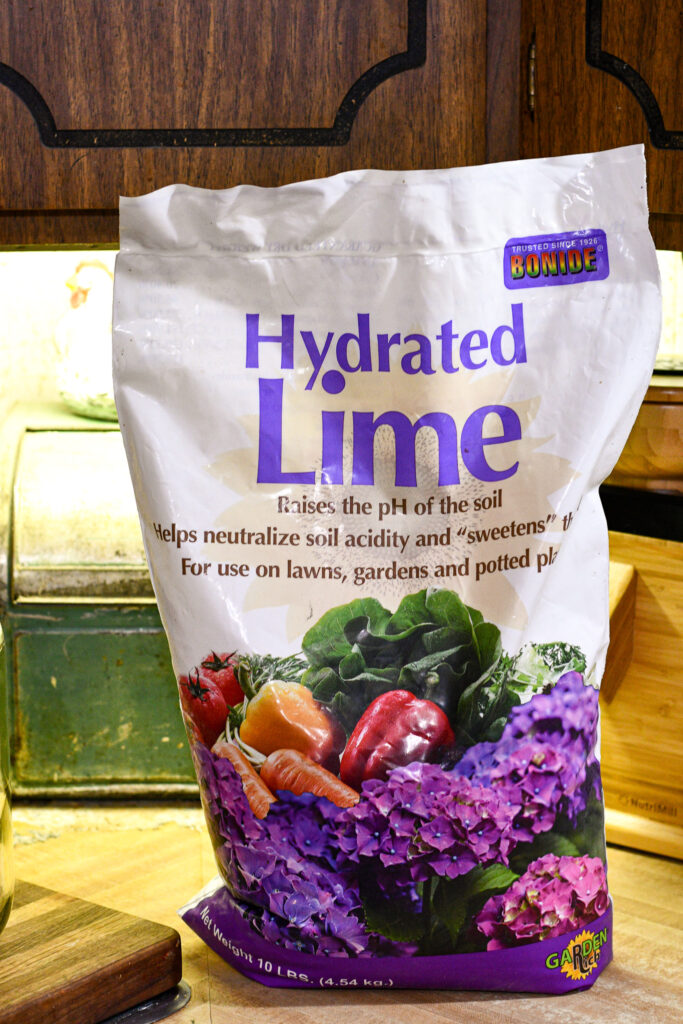
Ingredients/Equipment Needed for Preserving Eggs in Lime Water:
- Eggs (fresh, clean, unwashed)
- Hydrated Lime (pickling lime)
- Filtered Water (natural or distilled chlorine-free)
- Airtight Container (one gallon glass jar or feed grade bucket)
- Kitchen Scale ( for measuring hydrated lime)
You can purchase these items from our Amazon store here. If you are living in an area where you only have chlorinated or fluorinated tap water I suggest looking into a water filtration system such as the AlexaPure Pro. We personally love ours!
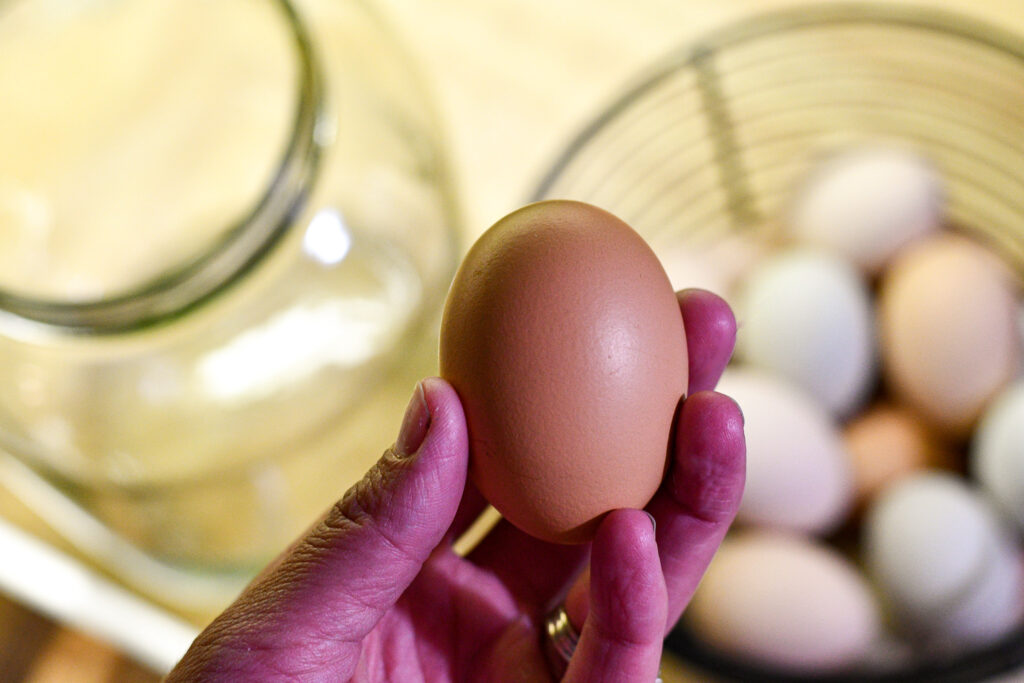
How to Preserve Your Eggs in Lime Water:
Step 1: Pick Out Your Eggs
You simply start with a fresh, clean, unwashed egg that has the bloom intact. Choose your prettiest eggs that are free of all dirt, poo, mud, as well as any other debris.
Step 2: Gently Add Eggs
Carefully fill your chosen storage container with your eggs pointy end down because it allows the air sac to be up and do the best you can. Do not crack any eggs or it will ruin the batch.
Step 3: Mix Up Your Lime Water Solution
Use your kitchen scale to measure out 1oz by weight of the hydrated or pickling lime and mix it with one quart of water until fully incorporated. You might have to do this a few different times depending on the size of the container you choose.
Step 4: Add the Lime Water, Secure a Lid, and Store
Pour the lime water solution over your eggs. Make sure they re fully submerged in the lime water. Secure your lid on your jar making it air tight preventing oxygen to get it and store your jar in a cool dark place until you are in the need of a farm fresh egg.
Pour the lime water solution over your eggs. Make sure they are fully submerged in the lime water. Secure your lid on your jar making it air tight preventing oxygen to get it and store your jar in a cool dark place until you are in the need of a farm fresh egg.

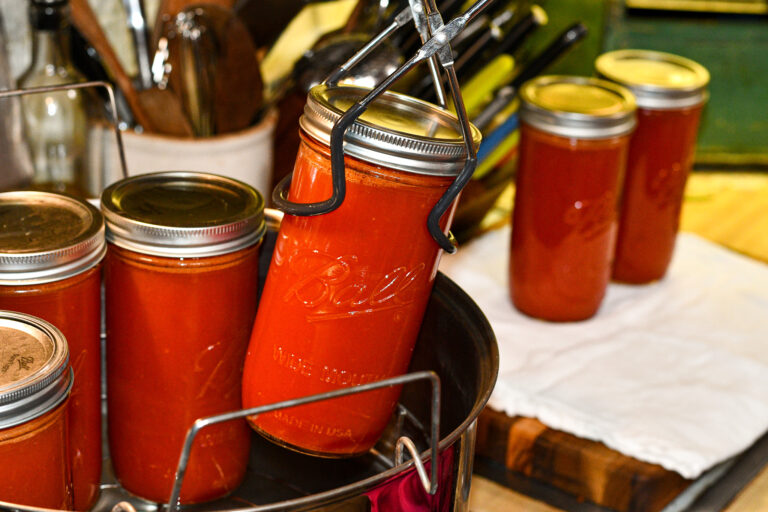
Valuable information. Fortunate me I discovered your website accidentally, and I’m syocked why this coincidence
did not took place in advance! I bookmarked it.
My web page – https://penzu.com/p/9427cac2